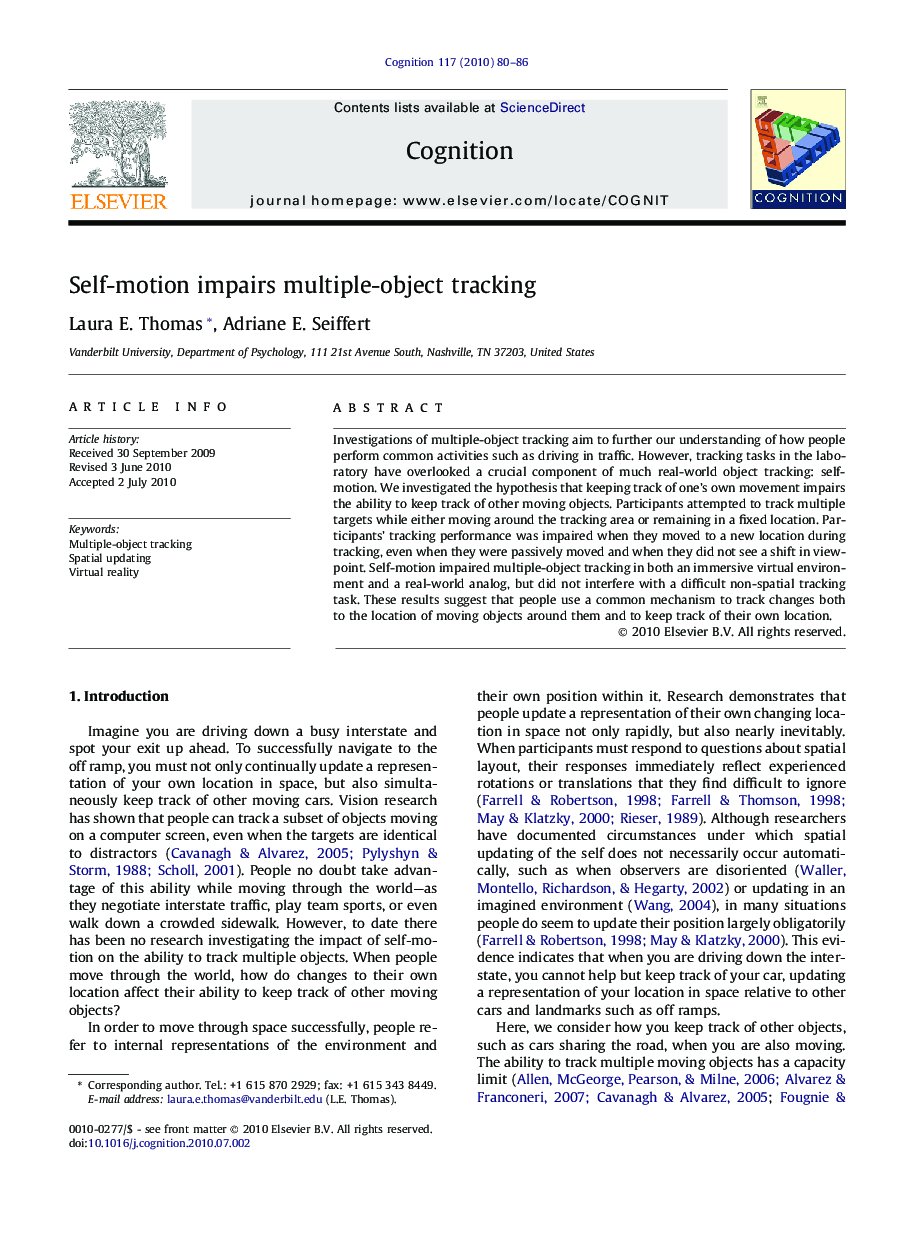| Article ID | Journal | Published Year | Pages | File Type |
|---|---|---|---|---|
| 927121 | Cognition | 2010 | 7 Pages |
Investigations of multiple-object tracking aim to further our understanding of how people perform common activities such as driving in traffic. However, tracking tasks in the laboratory have overlooked a crucial component of much real-world object tracking: self-motion. We investigated the hypothesis that keeping track of one’s own movement impairs the ability to keep track of other moving objects. Participants attempted to track multiple targets while either moving around the tracking area or remaining in a fixed location. Participants’ tracking performance was impaired when they moved to a new location during tracking, even when they were passively moved and when they did not see a shift in viewpoint. Self-motion impaired multiple-object tracking in both an immersive virtual environment and a real-world analog, but did not interfere with a difficult non-spatial tracking task. These results suggest that people use a common mechanism to track changes both to the location of moving objects around them and to keep track of their own location.
